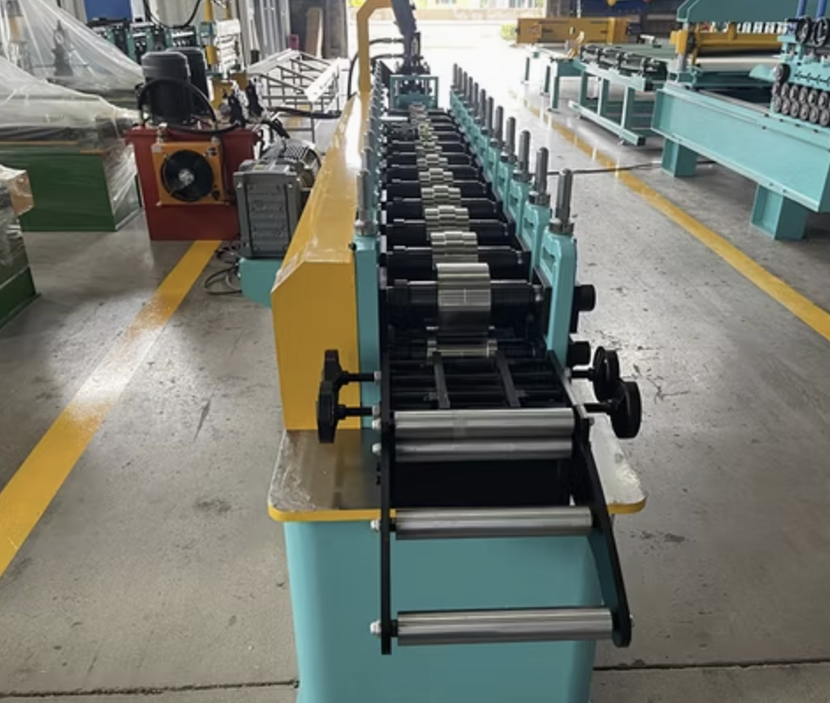To express an interest in this machine please submit the form below.

Not Sure What Machine You Need?
Select Your Profile, We'll Match It
Choose your desired profile drawing, and let Machine Matcher connect you with the best roll forming machine tailored to your needs.
Browse Profiles


A stud roll forming machine is a specialized industrial machine used to produce steel studs, which are essential components in drywall framing and lightweight construction projects. The machine operates by passing steel coils through a series of rollers that shape the material into a predefined stud profile. These machines are designed to create precise, uniform, and high-quality studs for various construction needs.
A stud roll forming machine is engineered for durability and efficiency. It is ideal for producing standard and custom-sized studs used in partition walls, ceilings, and other structural applications. The machine typically handles a variety of materials, including galvanized steel, aluminum, and high-strength steel, to cater to diverse industry needs.
Key features of the machine include:
| Feature | Specification |
|---|---|
| Roller Material | High-grade steel (e.g., GCr15) with heat treatment for durability |
| Material Thickness | 0.5 mm to 1.5 mm (customizable as per requirements) |
| Profile Sizes | Standard stud sizes (e.g., 2x4, 2x6) and custom dimensions |
| Frame Type | Heavy-duty steel frame for stability and longevity |
| Cutting System | Hydraulic or servo-controlled cutting for precise length adjustments |
| Machine Speed | 20–50 meters per minute (varies by model) |
| Power Supply | 220V/380V, 50Hz/60Hz, 3-phase |
| Control System | PLC with touchscreen interface for programming and monitoring |
| Material Type | Galvanized steel, aluminum, stainless steel |
| Safety Features | Emergency stop, safety guards, and fault detection systems |
| Optional Add-ons | Punching system, uncoilers, stackers, coil handling systems |
Stud roll forming machines in the USA are priced based on their features, automation levels, and production capacity. Entry-level machines may cost around $25,000–$40,000, while advanced models with additional features can go up to $100,000 or more.
Q1: What material types are suitable for a stud roll forming machine?
A: The machine can handle galvanized steel, aluminum, stainless steel, and other lightweight metals.
Q2: Can the machine produce custom-sized studs?
A: Yes, most machines can be customized to produce a wide range of stud sizes and profiles.
Q3: What is the average production speed?
A: The production speed typically ranges from 20 to 50 meters per minute, depending on the machine model and material thickness.
Q4: Is training provided for machine operation?
A: Many manufacturers offer training sessions during installation to ensure operators are proficient.
Q5: How often does the machine need maintenance?
A: Regular maintenance, such as lubrication and roller cleaning, should be performed weekly. Comprehensive inspections should occur monthly.
Q6: Are there safety features included in the machine?
A: Yes, machines are equipped with safety guards, emergency stop buttons, and fault detection systems.
Q7: Can the machine integrate with existing production lines?
A: Yes, modern stud roll forming machines can be integrated into automated production lines for increased efficiency.
Copyright 2026 © Machine Matcher.